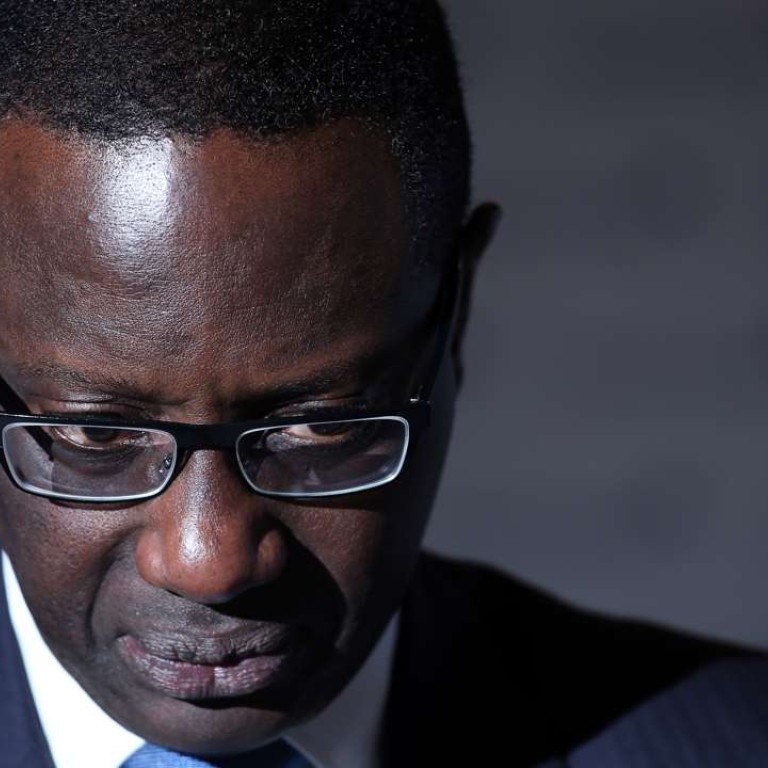
Credit Suisse banks on Asia’s long-term growth
One of the world’s largest private banks has sent bullish signals on Asia, realigning funds to the region as its demographics and long-term growth trajectory are seen as outweighing short-term turbulence.
“If you’re a wealth manager, you want to be where the wealth is being created, and wealth is being created on a huge scale in emerging markets,” Tidjane Thian, group chief executive of Credit Suisse, said in a media briefing at the 19th Annual Asian Investment Conference on Tuesday.
Thian said the Zurich-based bank had shifted some US$58 billion in capital to high-growth markets, including in Asia, since the middle of last year, and that strategic re-alignment had produced the bank’s best first quarter in 10 years in terms of net new asset flows.
“The return on capital is above 20 per cent most of the time,” Thian said. “We are basically reallocating capital from activities that generate 8 or 9 per cent.”
Admitting the bank was “underweight” on China, where it currently has asset management and brokerage joint ventures, he said Credit Suisse plans to increase its cross-border presence to tap into a rising tide of entrepreneur-driven growth that will eventually need to move offshore.
Thian also said concerns over slowing economic growth had been overstated and the commodities cycle would turn positive in the longer term. “We’ve never believed in a hard landing in China. We believe things are going to be reasonable,” he said.
In the wake of last week’s “Panama Papers” leak, Credit Suisse claims to hold a firmly principled stance on the concealment of assets in offshore tax havens, refusing to set up multi-jurisdictional structures unless assets are held in those jurisdictions and the ultimate beneficiaries are named.
“We only encourage the use of structures when they have a legitimate economic purpose,” Thian said. “We do not condone structures for tax avoidance or any kind of non-transparent activity at all.”
In 2014, Credit Suisse pleaded guilty to conspiracy to aid and assist US taxpayers in filing false income tax returns and other documents with the country’s Internal Revenue Service and agreed to pay a total of US$2.6 billion in fines.
As part of the plea agreement, Credit Suisse admitted it had operated an illegal cross-border banking business for several decades that had knowingly and willfully aided and assisted thousands of US clients to open and maintain undeclared accounts and conceal offshore assets.
Credit Suisse rated second, behind fellow Swiss bank UBS, in Euromoney’s private bank rankings for 2016, an assessment which considers factors including assets under management, net new assets and net income.

